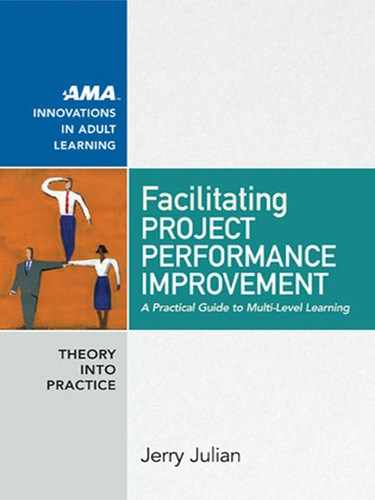68 Roles
American Management Association
www.amanet.org
DIAGNOSING AND INTERVENING
Schwarz (2002) provides guidance for how to diagnose and intervene with
groups to improve their e ectiveness. The diagnosis- intervention cycle
shown in Figure 3.5 is useful for multi- level learning coaches, as their
role is to help teams develop both a climate and a group process that are
conducive to productive learning and re ection. When the climate and
conditions are perceived to be getting in the way, the multi- level learning
coach may decide to intervene and help the team decide whether and
how to change its patterns and actions so that it can move forward in a
way that is more consistent with the models of e ective group processes.
The diagnosis- intervention cycle is important because it helps the coach
herself remain consistent with the core values of facilitation, modeling the
behavior for others as she intervenes.
The rst three steps of the cycle occur in the mind of the facilitator and
include (1) observing the behavior, (2) inferring meaning, and (3) deciding
whether or not to intervene. These represent all the steps in the Ladder
of Inference from observing behavior to drawing conclusions based on
one’s beliefs. Because these steps occur in the intervener’s mind and are
hidden from view, they must be communicated and tested with group
members in order to remain consistent with the rst core value of e ec-
tive intervention: valid information. Therefore, the next two steps in the
cycle are to (4) describe the observed behavior and (5) test the inferences
with the others involved. In the nal step, assuming that the group agrees
with the facilitator’s observations and inferences, she helps the group de-
cide whether or not it wants to change its behavior and, if so, what course
of action is most appropriate. The nal steps are consistent with the last
two core values of e ective intervention: free and informed choice and
internal commitment.
New facilitators may nd this cycle threatening at rst, because it in-
vites open disagreement between the facilitator and the group members.
Many corporate cultures, especially at managerial levels, do not reward
discussion leaders for inviting disagreement, as this is perceived as pos-
sibly undermining the leader’s credibility. For example, upon being en-
couraged to learn more about another department’s goals and intentions,
one senior manager with whom the author worked was quoted as say-
ing, “I don’t want to ask any questions to which I don’t already know the
..................Content has been hidden....................
You can't read the all page of ebook, please click here login for view all page.
